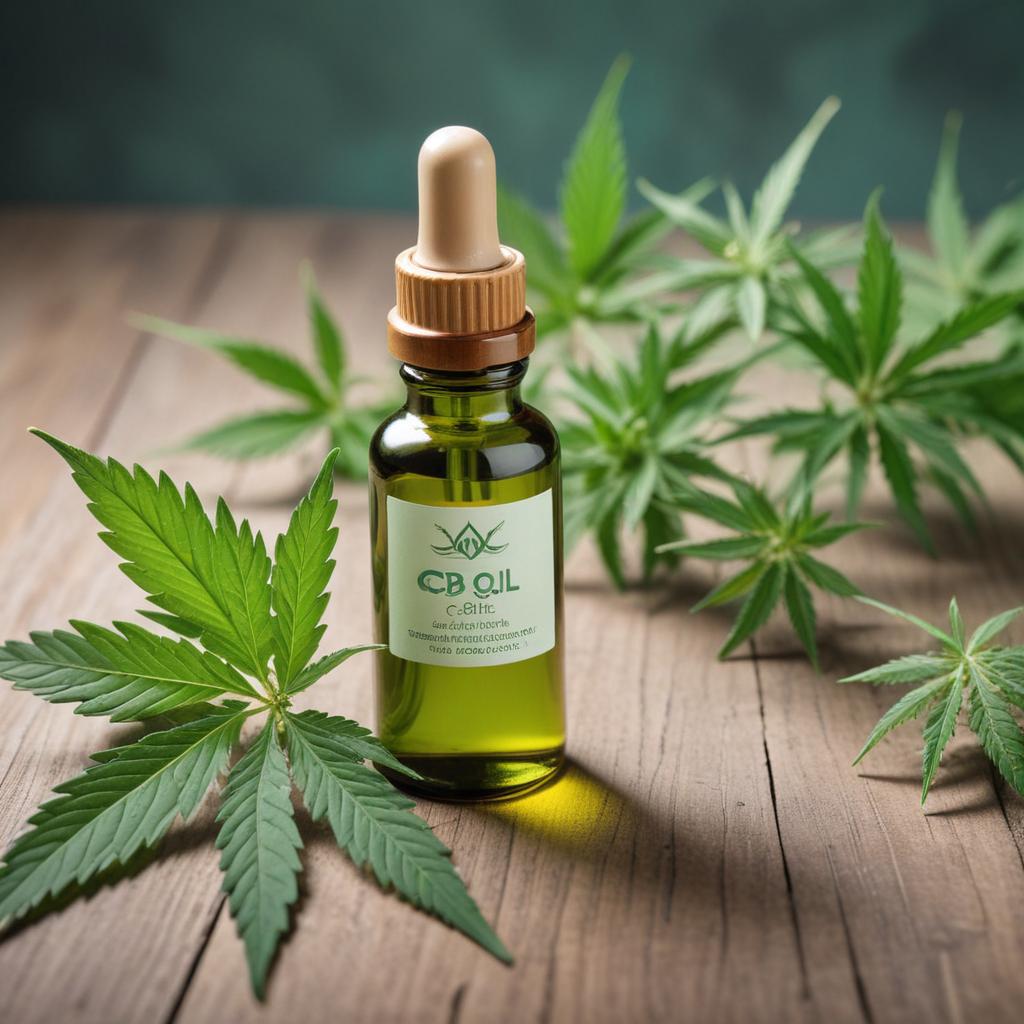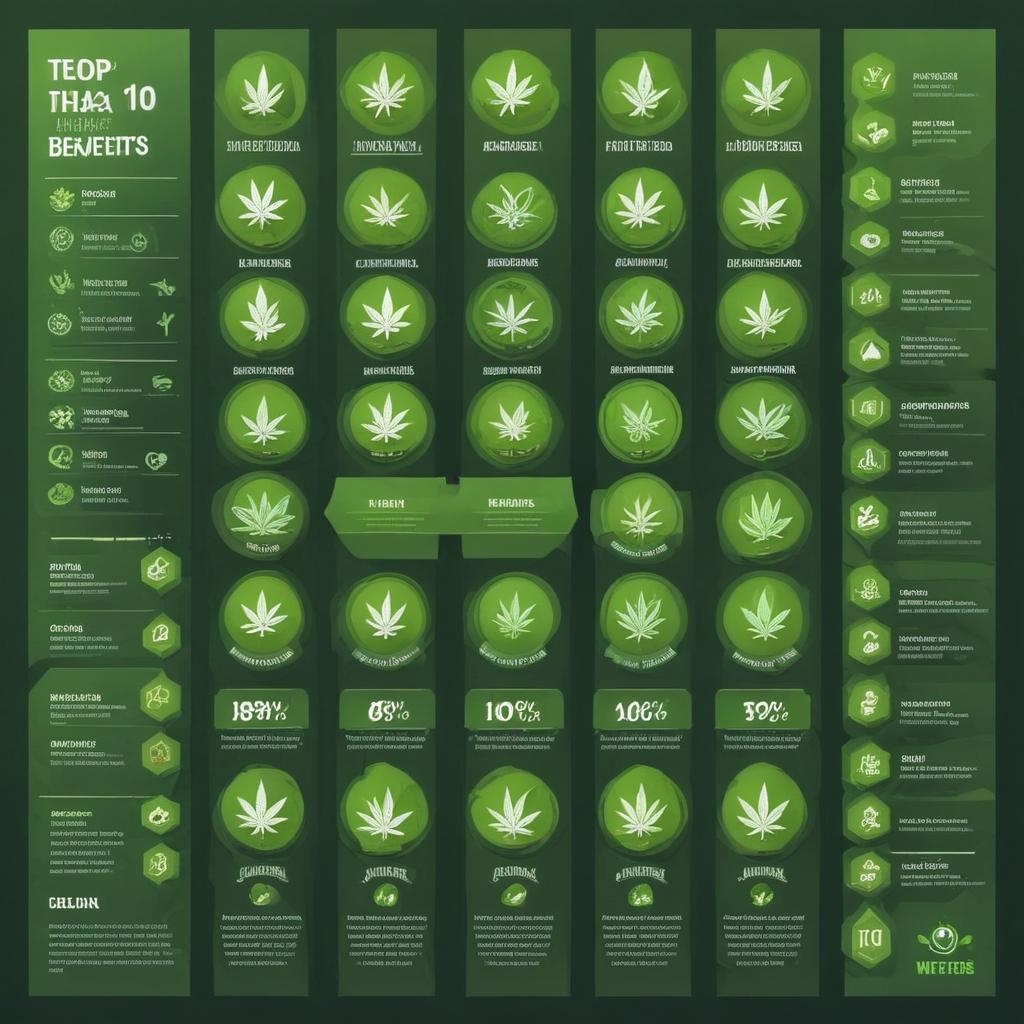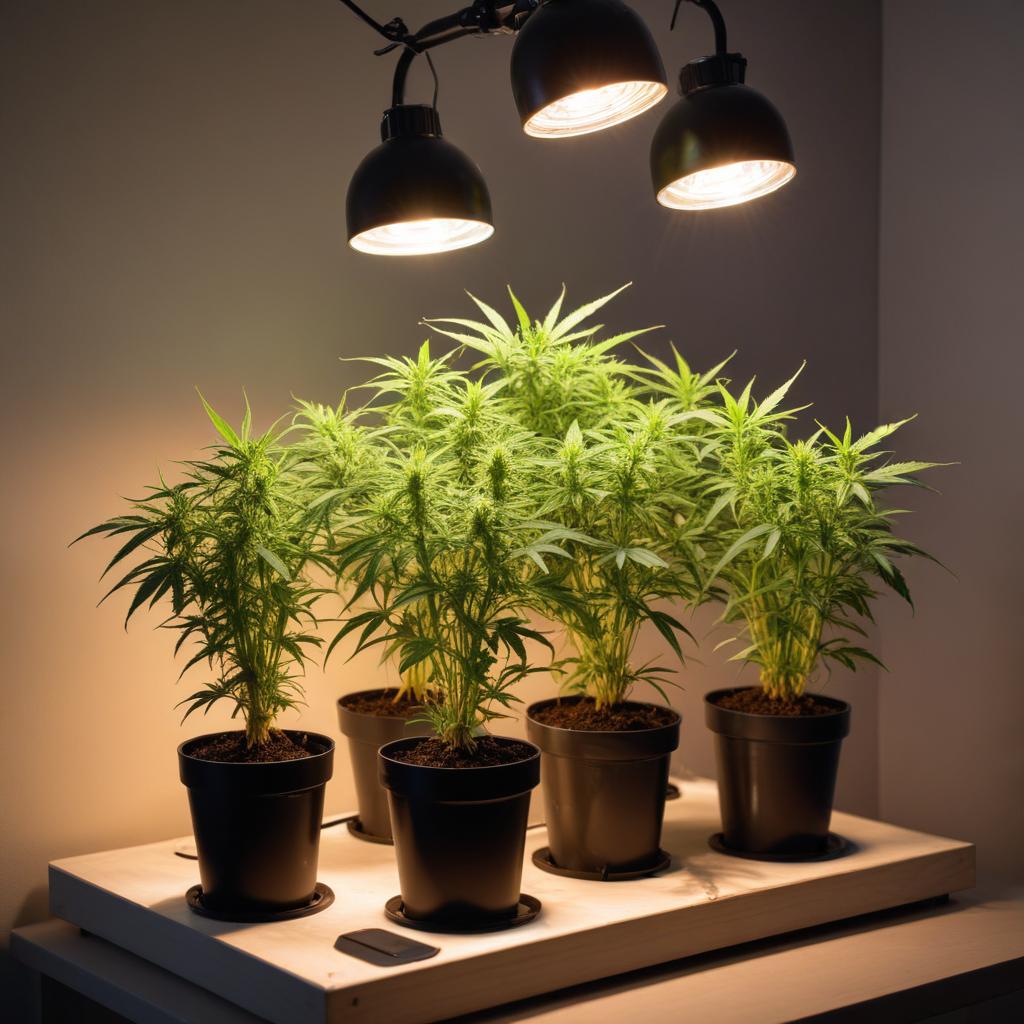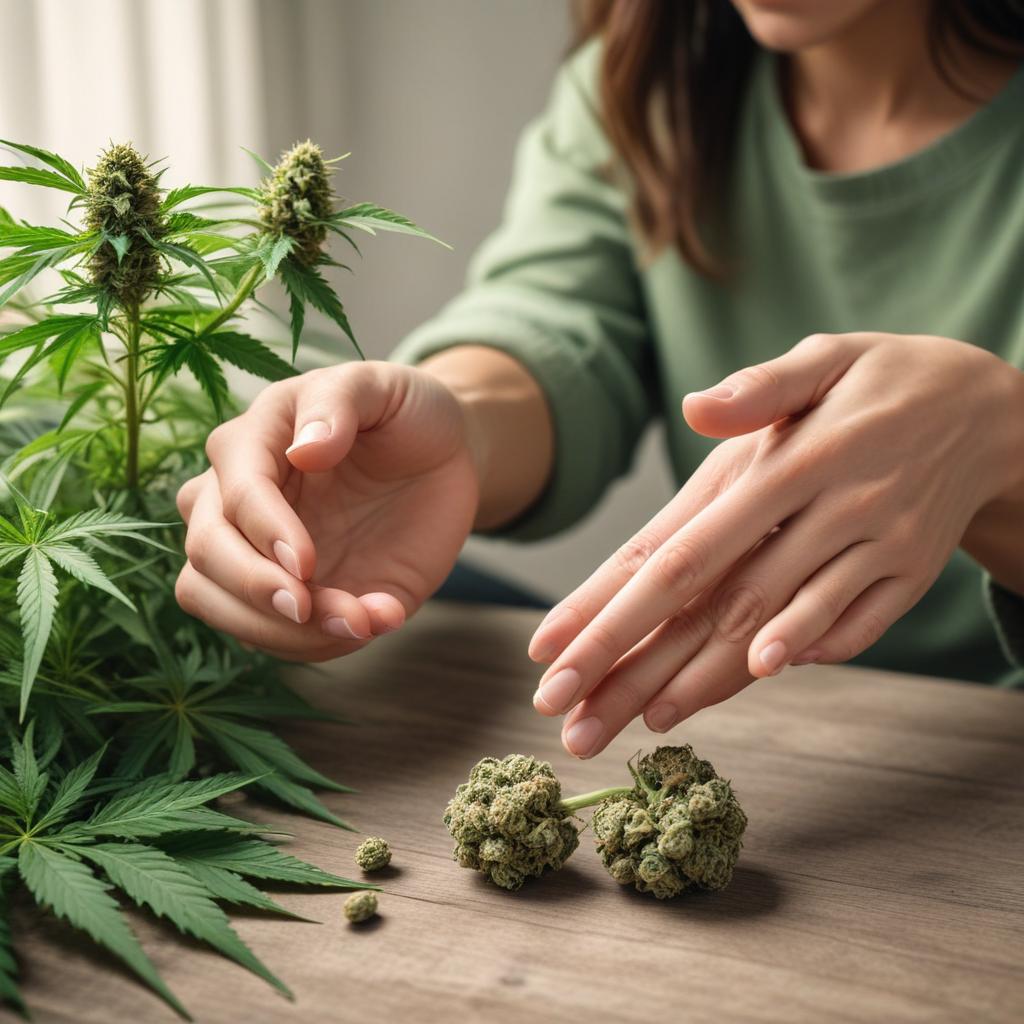CBD for Anxiety: Does It Really Work?

Anxiety disorders affect 40 million American adults - nearly 20% of the population. From generalized anxiety disorder to social anxiety, panic disorder to PTSD, these conditions can be debilitating. While traditional treatments like SSRIs and benzodiazepines help some people, they often come with significant side effects and don't work for everyone. CBD (cannabidiol) has emerged as a promising natural alternative for anxiety management, with growing research supporting its effectiveness.
What is CBD?
CBD is one of over 100 cannabinoids found in cannabis plants. Unlike its more famous cousin THC (tetrahydrocannabinol), CBD doesn't produce a "high" or intoxication. This makes it appealing for people seeking therapeutic benefits without altered consciousness or the potential anxiety that high-dose THC can sometimes cause. CBD is non-intoxicating, non-addictive, and has an excellent safety profile with minimal side effects.
CBD can be derived from marijuana or hemp (cannabis with less than 0.3% THC). Hemp-derived CBD is legal at the federal level in the United States, though state laws vary. This legal accessibility has made CBD widely available, with products ranging from oils and tinctures to edibles, capsules, and topicals flooding the market.
How Does CBD Work for Anxiety?
CBD's anti-anxiety effects come from its interaction with multiple systems in the body and brain. Unlike many medications that target a single receptor or neurotransmitter, CBD works through several mechanisms simultaneously, which may explain its effectiveness for anxiety.
Serotonin Receptors
One of CBD's primary mechanisms is its interaction with serotonin receptors, particularly the 5-HT1A receptor. This is the same receptor targeted by buspirone (BuSpar), a prescription anti-anxiety medication. Serotonin is a neurotransmitter crucial for mood regulation. Low serotonin levels are associated with anxiety and depression, which is why SSRIs (selective serotonin reuptake inhibitors) are commonly prescribed for these conditions. CBD's activation of 5-HT1A receptors may explain its anxiolytic (anxiety-reducing) effects.
The Endocannabinoid System
The endocannabinoid system (ECS) helps regulate mood, stress response, fear, and anxiety. Research suggests that dysregulation of the ECS may contribute to anxiety disorders. CBD doesn't directly bind to cannabinoid receptors like THC does, but it modulates the ECS in other ways. It inhibits the enzyme FAAH, which breaks down anandamide - an endocannabinoid known as the "bliss molecule." Higher anandamide levels are associated with reduced anxiety and improved mood.
Neurogenesis and Brain Protection
Chronic stress and anxiety can actually damage the brain, particularly the hippocampus, which is involved in memory and emotion regulation. Studies show that CBD may promote neurogenesis (growth of new brain cells) in the hippocampus. This neuroprotective effect could explain why CBD not only reduces immediate anxiety symptoms but may also provide long-term benefits with consistent use.
What Does the Research Say?
While CBD research is still in relatively early stages, the existing evidence is promising. A 2019 study published in The Permanente Journal followed 72 adults with anxiety. After taking CBD, 79.2% reported decreased anxiety scores within the first month, with most maintaining these improvements throughout the three-month study. Notably, the effects were sustained, suggesting CBD may provide lasting benefits rather than just temporary relief.
A 2015 review published in Neurotherapeutics analyzed all existing preclinical and clinical evidence on CBD for anxiety. The researchers concluded that CBD has considerable potential as a treatment for multiple anxiety disorders, including generalized anxiety disorder, panic disorder, social anxiety disorder, obsessive-compulsive disorder, and post-traumatic stress disorder.
Specific studies have shown remarkable results for social anxiety. In one study, participants with social anxiety disorder were given either 600mg of CBD or a placebo before a public speaking test. Those who received CBD experienced significantly reduced anxiety, cognitive impairment, and discomfort during their speech compared to the placebo group. Their anxiety levels were nearly the same as healthy controls without anxiety disorders.
Types of Anxiety CBD May Help
Generalized Anxiety Disorder (GAD)
GAD involves excessive, persistent worry about everyday things. People with GAD often can't stop worrying even when they recognize their anxiety is disproportionate to the situation. CBD may help by reducing overall anxiety levels and the physical symptoms like muscle tension and restlessness. Many people with GAD report that CBD helps them feel calmer without the sedation or cognitive impairment of benzodiazepines.
Social Anxiety Disorder
Social anxiety involves intense fear of social situations and being judged or embarrassed. It can be so severe that people avoid social interactions entirely. Research specifically on social anxiety has been particularly promising. CBD appears to reduce the fear response and cognitive impairment associated with social situations. Users report feeling more comfortable in social settings without feeling intoxicated or unlike themselves.
Panic Disorder
Panic attacks involve sudden episodes of intense fear accompanied by physical symptoms like rapid heartbeat, sweating, trembling, and feelings of impending doom. While research specifically on CBD for panic disorder is limited, studies show CBD reduces the fear response and has anxiolytic properties that may help prevent or reduce panic attacks. Some users take CBD both regularly for prevention and acutely when they feel a panic attack coming on.
PTSD and Trauma
Post-traumatic stress disorder involves anxiety, flashbacks, nightmares, and hypervigilance following traumatic experiences. CBD shows promise for PTSD through multiple mechanisms: reducing the consolidation of fear memories, decreasing the intensity of fear responses, and helping with fear extinction (the process of unlearning fear associations). For those dealing with PTSD-related sleep disturbances and nightmares, cannabis can be particularly helpful. Some studies suggest CBD may even help prevent PTSD if taken shortly after a traumatic event.
OCD (Obsessive-Compulsive Disorder)
OCD involves intrusive thoughts and repetitive behaviors performed to relieve anxiety. While research is preliminary, CBD's effects on serotonin receptors and its ability to reduce compulsive behaviors in animal studies suggest it may help OCD symptoms. Anecdotal reports from OCD patients using CBD are encouraging, with many reporting reduced intrusive thoughts and less need for compulsive behaviors.
Finding the Right CBD Product
Types of CBD
- Full-Spectrum CBD: Contains all cannabinoids found in the plant, including trace amounts of THC (less than 0.3%). May be most effective due to the "entourage effect" where compounds work synergistically. Some people prefer this for maximum benefits.
- Broad-Spectrum CBD: Contains multiple cannabinoids but with THC removed. Good middle ground for those who want entourage benefits without any THC.
- CBD Isolate: Pure CBD with all other compounds removed. Best for those who must avoid any THC (like athletes subject to drug testing) or who are very sensitive to other cannabinoids.
Delivery Methods
- Oils/Tinctures: Most popular and versatile. Taken under the tongue (sublingually) for faster absorption. Effects start in 15-30 minutes and last 4-6 hours. Easy to adjust dosing precisely. Great for daily anxiety management.
- Capsules: Convenient and provide consistent dosing. Take longer to kick in (45-90 minutes) but last longer (6-8 hours). Good for people who want simplicity and don't need immediate effects.
- Edibles (gummies, chocolates, etc.): Tasty and discreet. Similar timing to capsules. Make sure to check third-party testing as edibles market has quality variations.
- Vaporizing: Fastest-acting method (2-5 minutes) but shortest duration (2-3 hours). Good for acute anxiety or panic attacks. Vaping CBD flower or concentrates avoids potentially harmful additives in some vape cartridges.
- Topicals: Generally not effective for anxiety as they don't enter bloodstream significantly. Better for localized pain or skin conditions.
Quality Matters
The CBD market is largely unregulated, leading to quality issues. Studies have found that many CBD products don't contain the amount of CBD claimed on the label. Some contain harmful contaminants like pesticides, heavy metals, or residual solvents. Always look for:
- Third-party lab testing (Certificate of Analysis/COA available)
- Organic or pesticide-free hemp
- CO2 or ethanol extraction (avoid products using butane or propane)
- Clear labeling of CBD content per serving
- Reputable brands with transparent manufacturing practices
Dosing CBD for Anxiety
Finding the right CBD dose is highly individual. Factors include body weight, metabolism, severity of anxiety, individual body chemistry, and product quality. The general principle is "start low and go slow." Begin with a low dose (5-10mg) and increase gradually every few days until you find relief.
Research studies have used a wide range of doses, from 25mg to 600mg for anxiety. However, most people find their sweet spot between 20-50mg taken once or twice daily. Some need as little as 10mg, while others may need 100mg+ for significant effects. Higher doses aren't necessarily better - CBD may have a "bell curve" effect where too much is less effective than a moderate dose.
For daily anxiety management, many people take CBD once in the morning and once in the evening. For situational anxiety (like before a presentation), taking CBD 30-60 minutes beforehand may help. For acute anxiety or panic attacks, fast-acting methods like sublingual oils or vaporizing work best.
CBD vs. Traditional Anxiety Medications
CBD vs. SSRIs
SSRIs (like Prozac, Zoloft, Lexapro) are first-line treatments for anxiety disorders. They work by increasing serotonin availability. While effective for many, SSRIs can take 4-6 weeks to work, may cause sexual dysfunction, weight gain, emotional blunting, and withdrawal effects if stopped abruptly. CBD works more quickly (often within days), has fewer side effects, and doesn't cause sexual dysfunction or significant weight changes. However, SSRIs have more research supporting their long-term effectiveness.
CBD vs. Benzodiazepines
Benzodiazepines (like Xanax, Klonopin, Ativan) work quickly for acute anxiety but carry significant risks: physical dependence, cognitive impairment, risk of overdose (especially when combined with alcohol or opioids), and severe withdrawal. CBD provides anxiety relief without these serious risks. It's non-addictive, doesn't cause significant cognitive impairment, has no risk of fatal overdose, and can be stopped without withdrawal. The trade-off is that CBD may work more slowly than benzos for acute anxiety.
Combining CBD with Medications
Many people successfully use CBD alongside traditional anxiety medications. CBD may allow for lower doses of medication or eventual reduction. However, CBD can interact with some medications by affecting liver enzymes that metabolize drugs. Always consult your doctor before combining CBD with prescription medications. Never stop prescription medications abruptly - work with your healthcare provider to taper safely if transitioning to CBD.
Side Effects and Safety
CBD is remarkably safe with minimal side effects. The World Health Organization concluded that CBD has "no potential for abuse" and is "generally well tolerated with a good safety profile." Common side effects, when they occur, are mild: dry mouth, drowsiness (usually only at very high doses), changes in appetite, and diarrhea (uncommon). These effects are generally much milder than traditional anxiety medications.
CBD can interact with some medications, particularly those with a "grapefruit warning" as it affects the same liver enzymes. Blood thinners, certain antidepressants, and some heart medications may be affected. Always inform your healthcare providers about CBD use.
Realistic Expectations
While CBD shows great promise for anxiety, it's not a miracle cure. Some people experience dramatic relief, others moderate improvement, and a minority may not notice much benefit. Effects may be subtle at first, especially compared to strong medications like benzodiazepines. Give CBD time to work - at least 2-4 weeks of consistent use before deciding if it's helping.
CBD works best as part of a comprehensive anxiety management approach. Combine it with therapy (especially cognitive-behavioral therapy, which is highly effective for anxiety), regular exercise, good sleep hygiene, stress management techniques, and healthy lifestyle habits. CBD can make these other interventions easier to engage in by reducing baseline anxiety.
Conclusion
CBD offers a promising natural alternative for anxiety management. Its multiple mechanisms of action, excellent safety profile, lack of intoxication, and minimal side effects make it appealing for those seeking options beyond traditional medications. While more research is needed, existing evidence and thousands of user testimonials support CBD as an effective anxiety treatment.
If you're struggling with anxiety, CBD may be worth exploring. Start with quality products from reputable sources, begin with low doses, be patient, and track your results. Work with healthcare providers knowledgeable about CBD, especially if you're taking other medications. For many anxiety sufferers, CBD has provided the relief they've been seeking without the drawbacks of conventional treatments.
About the Author
Dr. Sarah Green is a contributing writer for Cannabis Health Home, specializing in mental health. With years of experience in cannabis research and education, they provide evidence-based insights to help our readers make informed decisions about their wellness journey.


